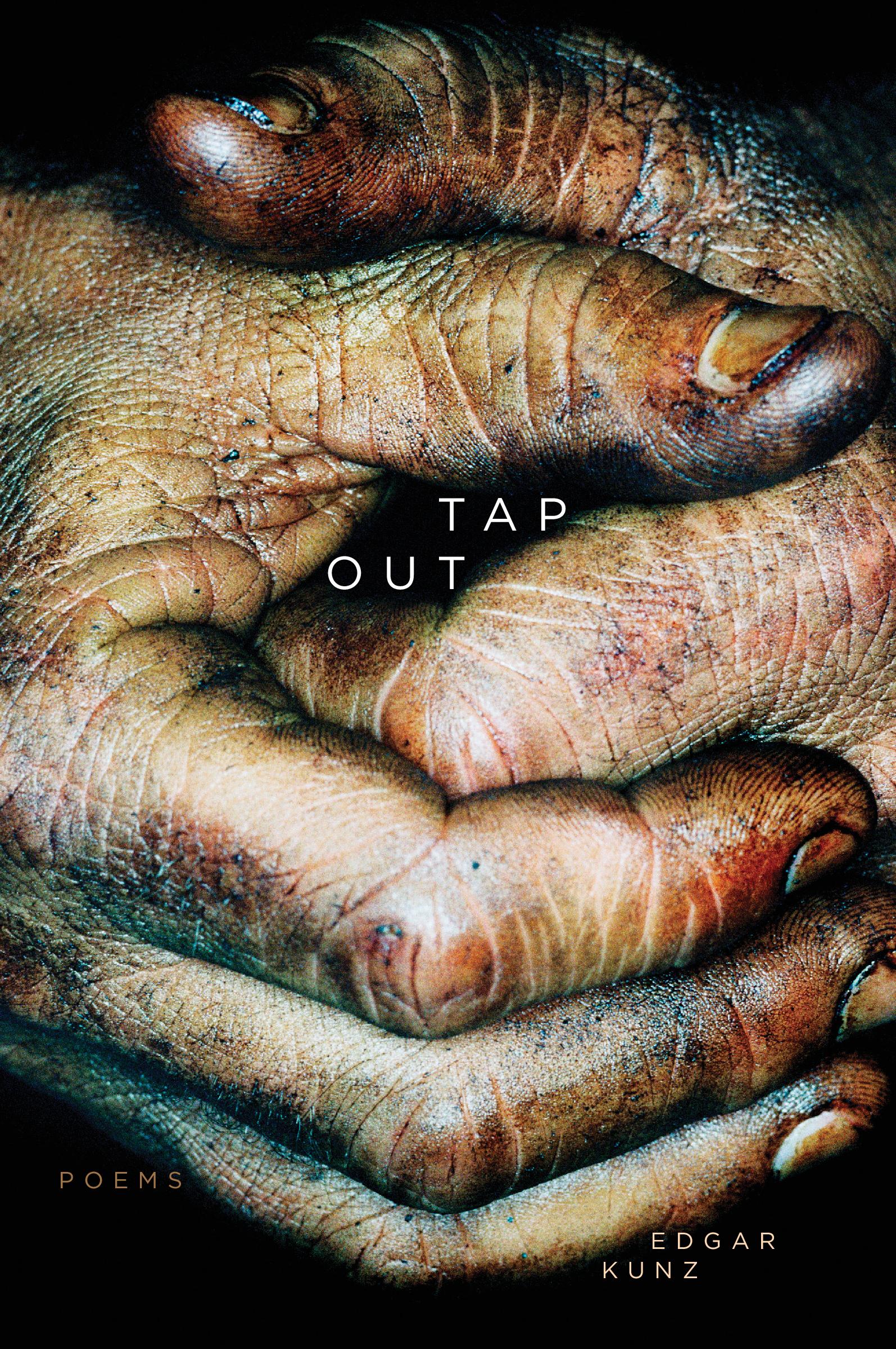Poet and Sewanee Review contributor Edgar Kunz's debut collection, Tap Out, publishes on March 5, 2019. Managing editor Eric Smith spoke to Kunz about his poem "Farmsitting," rituals, and the clarity of estrangement. Don't miss a reading by Kunz and Anders Carlson-Wee at Sewanee: the University of the South on March 12, 2019.
Farmsitting
by Edgar Kunz
Most days the same
with minor variations. Flat blue
of the 5am kitchen. Two scoops of feed
in a plastic bucket. A small bowl
of yogurt and an hour stacking
what the ice brought down overnight.
I was happy. I slept in their bed,
I read the mysteries on their shelves.
Always something precious gone,
someone hot on the trail.
I walked in borrowed boots
across the frozen pasture and back
each morning, each morning
the feed, the spigot, the horse dragging
its bulk against the stall.
I’d walk out nights and stand
on the same trampled spot in the yard
and listen to the cold stirring
in the cheatgrass. Dull glow of a town
on the horizon. Hiss of snow.
I’d lie in their bed under three heavy
cotton blankets and worry
about the horse and the dwindling
supplies. It was a life and it was not
mine. To sleep, I imagined the great
slabs of granite buried slantwise
in the hills. To sleep, I counted
the measures ticked out
in the porcelain tub, slow drip
to keep the pipes from freezing.
SR: “Farmsitting” ritualizes the ordinary, and maybe makes it reverent: “Two scoops of feed / in a plastic bucket. A small bowl / of yogurt and an hour stacking / what the ice brought down overnight.” What is your relationship to ritual? Are there any you hold to, in your writing or otherwise?
EK: I am ruled by my rituals! On a writing day, there are only two paths. In scenario one, I wake up, get dressed, and walk in the direction of a coffee shop. Hopefully something gets jostled loose on the way over—usually an image or a structural idea—and I sit down and write until I feel sick from too much coffee and not enough food. Then I go home, make lunch, and revise. In the other scenario, I stay home and break up my writing time with chores and projects. I get antsy. After I’ve gotten something going on the page, I’ll go for a run, learn a song on the guitar, bake bread, buy a mantle from a renovation job up the street and install it in my living room. (My sweetheart and I just bought a 100+ year old house in Baltimore and I’m teaching myself how to fix it up.) My main strategy for working through a problem in a poem is to get lost in a physical task. The brain keeps humming in the background.
SR: “I walked in borrowed boots” your speaker says, “across the frozen pasture and back / each morning.” While this is a life, it’s one made on loan. He tends to it only temporarily: “It was a life and it was not // mine.” To what—or to whom—do you owe this poem?
EK: Housesitting allows you to slip partway into another life. It makes an interloper out of you. It’s this estrangement from your own existence, your own routines and obsessions, that I find so interesting—and appealing. It’s one of the same pleasures I get from reading literature (novels especially, but often poems, too): I’m simultaneously transported into another’s experience and commanded to see my own life more clearly. Clarity through estrangement—something like that. The distance that allows the lens to focus. I guess I owe this poem to the desire to have more than one life, to try on someone else’s and see how it fits. Which is impossible, but maybe housesitting and literature are the closest we ever get to it.
SR: The farm’s owners are present in “Farmsitting,” but only in what of them has been left behind. Tap Out as a whole is riven with similar absences. What do you hope to reveal by walking the perimeter of such lives—and these lacunae—in your work?
EK: The book is all about departure: the addict father who’s utterly undependable, there then not; the birth mother who leaves early in the marriage; the speaker whose main survival mechanism is to run, and whose life is defined by a series of escapes. To tap out is to quit, to leave a bad situation. You tap out before you get seriously hurt, maybe irreparably. To be tapped out is to have no more money, or energy, or time. And “tap out” can be a taunt–or a plea.
Deciding to leave home for good was a harrowing experience. It was right when my father, an alcoholic, was swinging wildly between violence and depression, and my brothers were still very young. Though it profoundly shaped who I am in a hundred ways—mostly, I think, for the better—there’s a part of me that will always regret running. The poems are an attempt to reckon with that choice.

